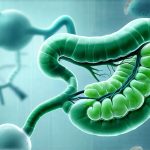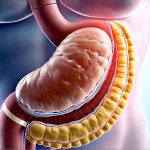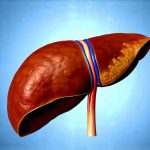The liver is often called the workhorse of the body, tirelessly performing over 500 vital functions – from detoxifying harmful substances and metabolizing nutrients to producing essential proteins and bile for digestion. It’s a resilient organ, capable of regeneration, but constant stress, both physical and emotional, can significantly burden its capacity and potentially lead to compromised function over time. While the liver is adept at handling moderate challenges, chronic stress creates a persistent demand that it may struggle to meet, impacting overall health and well-being. Understanding the intricate link between stress management and liver support isn’t about finding quick fixes but rather adopting sustainable lifestyle practices that nurture both mental and physical resilience.
Our modern lives are riddled with stressors – demanding jobs, financial worries, relationship issues, even constant exposure to information overload. These stressors trigger the release of cortisol, often dubbed the “stress hormone,” which initially provides a surge of energy to cope. However, prolonged cortisol elevation can disrupt numerous bodily processes, including liver function and metabolic balance. A stressed liver is less efficient at detoxification, potentially leading to toxins accumulating in the body, impacting energy levels, digestion, and immune response. It’s important to recognize that stress isn’t just a mental state; it has very real physiological consequences, and prioritizing proactive stress management is a fundamental aspect of supporting overall health, including a healthy liver.
Understanding the Stress-Liver Connection
The relationship between chronic stress and liver health is complex and multifaceted. When we experience prolonged stress, our bodies enter a constant “fight or flight” mode. This sustained activation of the sympathetic nervous system leads to increased cortisol production. While short bursts of cortisol are normal and even helpful, chronically elevated levels can have detrimental effects on the liver in several ways. Firstly, cortisol redirects blood flow away from vital organs like the liver towards muscles, preparing for immediate physical action – a response useful in acute situations but harmful when ongoing. This reduced blood supply impairs the liver’s ability to perform its functions effectively. Secondly, chronic stress impacts metabolic processes; it can contribute to insulin resistance, increased fat storage around the liver (leading to non-alcoholic fatty liver disease or NAFLD), and altered glucose metabolism.
Furthermore, stress often leads to unhealthy coping mechanisms – poor diet choices, excessive alcohol consumption, lack of sleep – all of which directly burden the liver. Processed foods, high in sugar and unhealthy fats, require the liver to work harder to process them, while alcohol is directly toxic to liver cells. Sleep deprivation disrupts the body’s natural detoxification processes, further overwhelming the liver’s capacity. It’s a vicious cycle: stress leads to unhealthy habits, which exacerbate liver strain, leading to more stress. Breaking this cycle requires conscious effort and a holistic approach.
Finally, stress can also impact gut health. The gut microbiome plays a crucial role in overall health, including liver function, as it influences inflammation levels and nutrient absorption. Stress disrupts the balance of gut bacteria, potentially leading to increased intestinal permeability (often called “leaky gut”) which allows toxins to enter the bloodstream, placing additional burden on the liver for detoxification.
Practical Strategies for Stress Reduction
Stress management isn’t about eliminating stress entirely – that’s often unrealistic – but rather about developing strategies to mitigate its impact and build resilience. The first step is self-awareness. Recognizing your personal stressors and how they manifest physically and emotionally is crucial. Keep a journal, pay attention to your body signals (muscle tension, headaches, fatigue), and identify patterns in your stress responses. Once you understand what triggers your stress, you can begin implementing effective coping mechanisms.
Here are some evidence-based strategies for stress reduction:
- Mindfulness and Meditation: Regular mindfulness practices, even just 10-15 minutes a day, can significantly reduce cortisol levels and promote relaxation. Guided meditation apps or online resources can be helpful starting points.
- Regular Physical Activity: Exercise is a powerful stress reliever. It releases endorphins, natural mood boosters, and helps to regulate cortisol levels. Aim for at least 30 minutes of moderate-intensity exercise most days of the week.
- Deep Breathing Exercises: Simple deep breathing techniques can quickly calm the nervous system and reduce anxiety. Diaphragmatic breathing, where you focus on expanding your abdomen with each breath, is particularly effective.
- Social Connection: Spending time with loved ones provides emotional support and reduces feelings of isolation. Strong social connections are a buffer against stress.
- Prioritize Sleep: Aim for 7-9 hours of quality sleep per night. Establish a regular sleep schedule, create a relaxing bedtime routine, and ensure your bedroom is dark, quiet, and cool.
The Role of Diet in Stress Management & Liver Support
Diet plays a pivotal role in both managing stress and supporting liver function. A nutrient-rich diet provides the building blocks for optimal health and can help to buffer against the negative effects of stress. Focus on whole, unprocessed foods, including plenty of fruits, vegetables, lean proteins, and healthy fats. Specifically, incorporate foods known to support liver detoxification pathways:
- Cruciferous Vegetables: Broccoli, cauliflower, Brussels sprouts contain compounds that aid in detoxification.
- Leafy Greens: Spinach, kale, collard greens are rich in antioxidants and nutrients essential for liver health.
- Berries: Blueberries, strawberries, raspberries are packed with antioxidants to protect against oxidative stress.
- Garlic & Onions: Contain sulfur compounds that support detoxification enzymes in the liver.
Conversely, limit or avoid foods that burden the liver: processed foods, sugary drinks, excessive alcohol, and high-fat meals. Hydration is also crucial. Water helps flush out toxins and supports optimal liver function. Aim to drink at least 8 glasses of water per day. Reducing caffeine intake can be beneficial for some individuals, as it stimulates cortisol production. Consider incorporating herbal teas known for their calming properties, such as chamomile or lavender.
Cultivating Healthy Boundaries & Self-Care
Stress often arises from taking on too much or failing to set healthy boundaries. Learning to say “no” to commitments that overwhelm you is essential for protecting your energy and mental well-being. This requires self-reflection and a willingness to prioritize your own needs. Setting boundaries isn’t selfish; it’s necessary for maintaining balance and preventing burnout. Regularly assess your workload, identify areas where you feel overextended, and delegate tasks when possible.
Self-care is not simply about indulging in occasional treats – it’s about consistently nurturing your physical, emotional, and mental health. This can include activities that bring you joy and relaxation, such as reading, spending time in nature, listening to music, or practicing a hobby. Make self-care a non-negotiable part of your routine. It’s also important to cultivate emotional resilience. This involves developing coping mechanisms for dealing with difficult emotions, seeking support from others when needed, and practicing self-compassion. Remember that it’s okay to ask for help and that taking care of yourself is not a luxury but a necessity for both your well-being and the health of your liver. Prioritizing these aspects allows you to approach life’s challenges with greater calm and resilience, ultimately supporting optimal liver function and overall health.


















